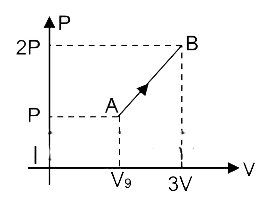In Q29. find the average value of specific heat.
at303+bt202+ct0
at03+(bt20
at20+bt0+c
zero
To find the average value of specific heat, we can follow these steps:
Step 1: Understand the Formula for Specific Heat
The specific heat (c) of a substance is defined as the amount of heat (Q) required to raise the temperature of a unit mass (m) of the substance by one degree Celsius (or one Kelvin). The formula is given by:
c=QmΔT
where:
- c = specific heat
- Q = heat added
- m = mass of the substance
- ΔT = change in temperature (final temperature - initial temperature)
Step 2: Identify the Given Values
In this case, we need to determine the values for:
- Mass of the substance (m)
- Initial temperature (T_initial = 0°C)
- Final temperature (T_final = T°C)
- Change in temperature (ΔT=T−0=T)
Step 3: Calculate the Heat Required
Using the formula for specific heat, we can express the heat required to raise the temperature from 0°C to T°C as:
Q=m⋅c⋅ΔT
Substituting ΔT with T:
Q=m⋅c⋅T
Step 4: Rearranging the Formula
To find the average specific heat, we can rearrange the formula to solve for c:
c=Qm⋅T
Step 5: Average Value of Specific Heat
If we have multiple values of heat (Q) for different temperatures, we can calculate the average specific heat by taking the sum of all specific heats calculated for each temperature and dividing by the number of values.
cavg=c1+c2+c3+...+cnn
where c1,c2,c3,...,cn are the specific heats for each temperature and n is the number of measurements.
Final Step: Conclusion
Thus, to find the average value of specific heat, we need to calculate the specific heat for each temperature change and then find the average.
---
The specific heat (c) of a substance is defined as the amount of heat (Q) required to raise the temperature of a unit mass (m) of the substance by one degree Celsius (or one Kelvin). The formula is given by:
- c = specific heat
- Q = heat added
- m = mass of the substance
- ΔT = change in temperature (final temperature - initial temperature)
In this case, we need to determine the values for:
- Mass of the substance (m)
- Initial temperature (T_initial = 0°C)
- Final temperature (T_final = T°C)
- Change in temperature (ΔT=T−0=T)
Using the formula for specific heat, we can express the heat required to raise the temperature from 0°C to T°C as:
To find the average specific heat, we can rearrange the formula to solve for c:
If we have multiple values of heat (Q) for different temperatures, we can calculate the average specific heat by taking the sum of all specific heats calculated for each temperature and dividing by the number of values.
Thus, to find the average value of specific heat, we need to calculate the specific heat for each temperature change and then find the average.
Topper's Solved these Questions
- HEAT, TEMPERATURE AND CALORIMETRYBOOK - BITSAT GUIDECHAPTER - HEAT, TEMPERATURE AND CALORIMETRYEXERCISE - Bitsat archives
9 Videos
- GRAVITATIONBOOK - BITSAT GUIDECHAPTER - GRAVITATIONEXERCISE - BITSAT Archives
15 Videos
- LAWS OF THERMODYNAMICSBOOK - BITSAT GUIDECHAPTER - LAWS OF THERMODYNAMICSEXERCISE - 40
1 Videos
Similar Questions
Why does a gas not have a unique value of specific heat ?
View SolutionSpecific heat of hydrogen at constant pressure Cp=29joule kelvin−1mol−1.
(a) Find dimensions of Cp.
(b) Unit of length is changed to 50cm, unit of time is changed to 2sec, unit of temperature is changed to 2K, keeping units of mass and amount of substance same. Find the value of specific heat of hydrogen in new system of units.
View Solution
Knowledge Check
Assertion : A gas have a unique value of specific heat.
Reason : Specific heat is defined as the amount of heat required to raise the temperature of unit mass of the substance through unit degree.AIf both assertion and reason are true and the reason is the correct explanation of the assertion.BIf both assertion and reason are true but re ason is not the correct explanation of the assertionCIf assertion is true but reason is false.DIf assertion is false but reason is true.If temperature scale is changed from '∘C to '∘F, the numerical value of specific heat
AdecreasesBincreasesCremains constantDbecomes infinityWhich one of the following has the highest value of specific heat?
AGlassBCopperCLeadDWater
Statement 1: A gas has a unique value of specific heat.
Statement 2: Specific heat is defined as the amount of heat required to raise the temperature of unit mass of the substance through unit degree.
View SolutionIf radiation correction is not considered in specific heat measurement. The measured value of If radio specific heat will be
View SolutionWhich of the following substances has the lowest value of specific heat
View SolutionOne mole of a monoatomic ideal gas undergoes process AB in given P – V diagram then average specific heat for this process is:

View SolutionWhich of the following substance have the highest value of molar specific heat?
View Solution
